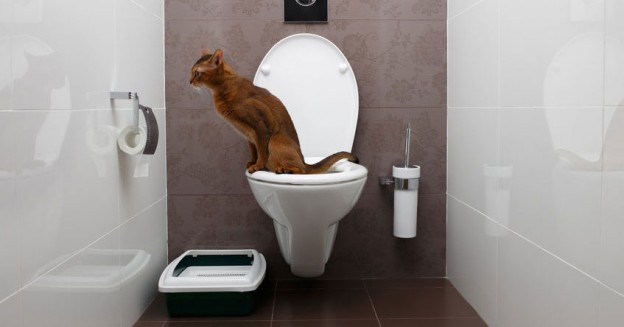Potential Issues of Flushing Cat Poop Down Your Toilet - Protect Your Plumbing
Potential Issues of Flushing Cat Poop Down Your Toilet - Protect Your Plumbing
Blog Article
How do you really feel in relation to Don’t flush cat feces down the toilet?

Introduction
As feline proprietors, it's vital to be mindful of exactly how we dispose of our feline buddies' waste. While it might appear hassle-free to purge feline poop down the toilet, this practice can have destructive consequences for both the setting and human health and wellness.
Alternatives to Flushing
The good news is, there are more secure and more liable methods to dispose of pet cat poop. Take into consideration the adhering to options:
1. Scoop and Dispose in Trash
One of the most usual method of disposing of feline poop is to scoop it into a biodegradable bag and toss it in the garbage. Be sure to utilize a dedicated trash scoop and throw away the waste immediately.
2. Usage Biodegradable Litter
Opt for naturally degradable feline clutter made from products such as corn or wheat. These clutters are environmentally friendly and can be safely gotten rid of in the trash.
3. Bury in the Yard
If you have a lawn, think about burying cat waste in a designated area far from veggie yards and water sources. Be sure to dig deep enough to prevent contamination of groundwater.
4. Mount a Pet Waste Disposal System
Buy a family pet garbage disposal system specifically designed for pet cat waste. These systems utilize enzymes to break down the waste, reducing smell and environmental influence.
Health and wellness Risks
In addition to ecological concerns, purging cat waste can likewise pose health and wellness threats to people. Pet cat feces might include Toxoplasma gondii, a bloodsucker that can create toxoplasmosis-- a possibly serious illness, especially for pregnant females and people with damaged body immune systems.
Environmental Impact
Flushing pet cat poop presents hazardous virus and parasites right into the supply of water, posing a substantial threat to marine ecosystems. These contaminants can negatively impact marine life and compromise water top quality.
Conclusion
Liable family pet ownership extends beyond offering food and sanctuary-- it also involves correct waste monitoring. By avoiding flushing cat poop down the bathroom and going with different disposal approaches, we can decrease our ecological impact and shield human health and wellness.
Why You Should Never Flush Cat Poop Down the Toilet
A rose by any other name might smell as sweet, but not all poop is created equal. Toilets, and our sewage systems, are designed for human excrement, not animal waste. It might seem like it couldn’t hurt to toss cat feces into the loo, but it’s not a good idea to flush cat poop in the toilet.
First and foremost, assuming your cat uses a litter box, any waste is going to have litter on it. And even the smallest amount of litter can wreak havoc on plumbing.
Over time, small amounts build up, filling up your septic system. Most litter sold today is clumping; it is made from a type of clay that hardens when it gets wet. Ever tried to scrape old clumps from the bottom of a litter box? You know just how cement-hard it can get!
Now imagine just a small clump of that stuck in your pipes. A simple de-clogger like Drano isn’t going to cut it. And that means it’s going to cost you big time to fix it.
Parasitic Contamination
Believe it or not, your healthy kitty may be harboring a nasty parasite. Only cats excrete Toxoplasma in their feces. Yet it rarely causes serious health issues in the cats that are infected. Most people will be fine too if infected. Only pregnant women and people with compromised immune systems are at risk. (If you’ve ever heard how women who are expecting are excused from litter cleaning duty, Toxoplasma is why.)
But other animals may have a problem if infected with the parasite. And human water treatment systems aren’t designed to handle it. As a result, the systems don’t remove the parasite before discharging wastewater into local waterways. Fish, shellfish, and other marine life — otters in particular — are susceptible to toxoplasma. If exposed, most will end up with brain damage and many will die.
Depending on the species of fish, they may end up on someone’s fish hook and, ultimately on someone’s dinner plate. If that someone has a chronic illness, they’re at risk.
Skip the Toilet Training
We know there are folks out there who like to toilet train their cats. And we give them props, it takes a lot of work. But thanks to the toxoplasma, it’s not a good idea.

We were shown that article on Can You Flush Cat Poop Down The Toilet? through a friend on another web page. Don't hesitate to set aside a second to promote this entry if you enjoyed it. Thank-you for going through it.
Course Detail Report this page